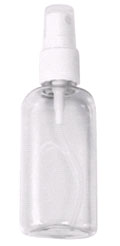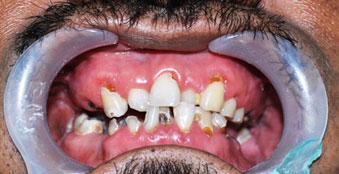Introduction
Cancer is a malignant disease which can cause unfortunate suffering and impairment to those affected if untreated. Cancer treatment involves either one or combinations of surgery, radiotherapy and/or chemotherapy. The structures in the mouth can directly be affected due to the malignancy or indirectly from the unwanted effect due to the cancer treatment.
The adverse effects from cancer treatment are different in each individual. Therefore, it is essential to have a dental check-up before cancer treatment is carried out. This topic will cover on how to care for your mouth at the different stages of therapy and what to expect during the dental visit.
Before Radiotherapy/Chemotherapy
- Initiate a good oral hygiene habit :
- Brush your teeth and gum gently in the morning and before going to bed at night.
- Use a soft bristles toothbrush.
- Use fluoride containing toothpaste. Fluoride helps to strengthen your teeth and stops the growth of dental plaque (bacteria).
- Use dental floss or inter-dental toothbrush to clean between your teeth.
- Use alcohol free antibacterial mouthwash or gel (e.g.: Chlorhexidine).
- Denture care includes
- Rinse the denture after each meal with water to remove food debris.
- Clean the denture with soft brush and soap for cleaning to prevent scratch from abrasion.
- Soak the denture with water when not in use especially at night.
- Dental visit
- Complete dental check-up is highly recommended.
- Any problematic teeth should be removed:
- Teeth with large and deep cavity
- Loose teeth due to severe gum problem/ infection
- Routine dental treatment (e.g.: filling, scaling).
- The objective is to achieve fit and healthy oral condition before cancer treatment.
During Radiotherapy/Chemotherapy
- Continue good oral hygiene habits.
- At this stage, a side effect of mouth ulceration or also known as mucositis can be significant.
- Skin layer in the mouth is fragile, painful and could present with ulcers, inflammation and may bleed easily.
- At this stage, a side effect of mouth ulceration or also known as mucositis can be significant.
- Tips on modification of oral hygiene habits:
- Don’t stop brushing your teeth!
- When your mouth is sore/pain, use extra soft bristles and smaller head toothbrush.
- Run warm water on the bristles of toothbrush to make it more comfortable during brushing.
- If brushing is uncomfortable especially when you have nausea, use alcohol free antibacterial mouthwash or gel or use oral swab for cleaning.
- Take frequent sips of water for hydration.
- Sucking on ice chips for relief.
- Don’t wear your denture if you feel uncomfortable or if there is an ulcer or bleeding in your mouth.
- Avoid consuming sugar-containing drink to prevent risk of tooth caries/decay.
- Use anaesthetics gel and mouth rinses for pain relief. Please consult your dentists/ doctor for this medication.
- Use of antifungal medication if fungal infection in the mouth is present. Please consult your dentist/doctor for this medication.
- Dental visit
- Dental treatment is best avoided during this stage.
- Only emergency dental treatment is acceptable. Please consult your dentist.
After Radiotherapy/Chemotherapy
- Continue and maintain good oral hygiene habits.
- At this stage, side effects that may be presented are :
- Dry mouth- saliva becomes thick and sticky. This may be permanent depending on the dose and cycle of the radiotherapy.
- Taste alteration- your taste buds is affected. This can be temporary or permanent.
- Tips on modification of oral hygiene habits:
- Suck or chew sugar-free gum to stimulate saliva and control the acidity in your mouth.
- Use spray bottle containing water to moisten the oral mucosa. Spray the mouth for every hour.
 Spray bottle with drinking water
Spray bottle with drinking water
- At this stage, side effects that may be presented are :
- If you have limited mouth opening as a result of cancer therapy, jaw exercise can be implemented. Please consult your dentist.
 Patient who has history of cancer of the right cheek with limited mouth opening (trismus) after cancer treatment.
Patient who has history of cancer of the right cheek with limited mouth opening (trismus) after cancer treatment.
- Dental visit
- Regular dental check-up to maintain healthy teeth and gum.
- Dental visit is done in every 3 or 4 month dental visits for the first two years. Subsequently followed by 6-monthly visit if the condition is stable.
- Important issues (Severe complication causes the bones inability to properly heal therefore you may need modification for dental treatment):
- Please inform your dentist if you have received radiotherapy in the Head and Neck region.
- Please inform your dentist if you have received chemotherapy drugs:
- Bisphosphonates(e.g.: Zometa/ Zoledronic Acid)
- Denosumab
 |
 |
|
|
Patient with 5 years-history of completed radiotherapy and chemotherapy for Nasopharyngeal Cancer (NPC) with neglected dental care.
|
Patient with 3 years- history of completed radiotherapy and chemotherapy for NPC with proper dental care. |
| Last Reviewed | : | 20 March 2015 |
| Writer | : | Dr. Norjehan bt. Yahaya |
| Accreditor | : | Dr. Siti Zaleha bt. Hamzah |







